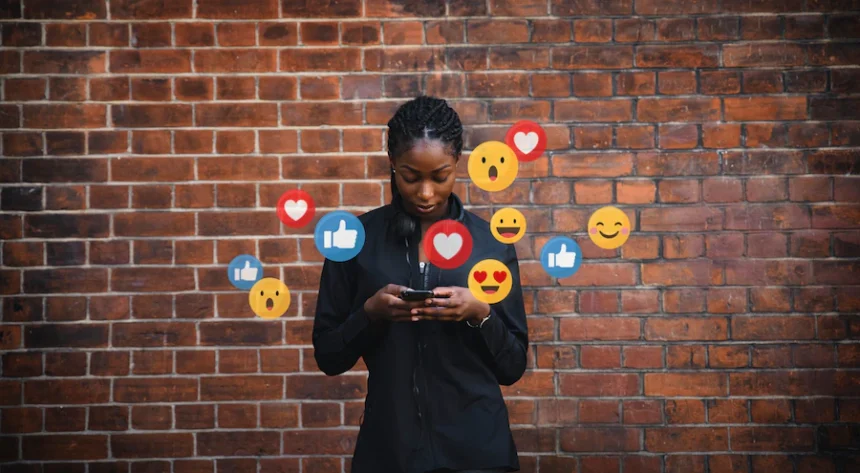Social media has become an integral part of our daily lives, connecting people across the globe and providing platforms for self-expression and information sharing. In South Africa, as in many other countries, social media has gained immense popularity and influence. While it offers various benefits, such as increased connectivity and access to information, there is a growing concern about its impact on mental health. The pervasive use of social media platforms has raised important questions about its potential negative effects on the mental well-being of South Africans.
Comparison and Self-Esteem: One of the significant challenges associated with social media is the tendency for users to engage in social comparison. South Africans, like individuals worldwide, often find themselves comparing their lives, appearances, and achievements to others, leading to feelings of inadequacy and diminished self-esteem. The curated nature of social media platforms, where individuals tend to showcase their best moments and achievements, can create unrealistic standards and a constant need for validation.
Body Image and Beauty Standards: Social media platforms are often inundated with carefully edited and filtered images that promote narrow and idealized beauty standards. In South Africa, where diverse cultural norms of beauty exist, social media can exacerbate body image concerns and contribute to dissatisfaction with one’s appearance. This can lead to the development of eating disorders, body dysmorphia, and a negative impact on overall mental well-being.
Cyberbullying and Online Harassment: South Africans, particularly young people, are not immune to the harmful effects of cyberbullying and online harassment. Social media provides a platform for anonymous individuals to engage in hurtful behavior, leading to emotional distress, anxiety, and depression. The constant exposure to negative comments and cyberbullying can have a detrimental impact on mental health, especially when individuals feel trapped in a virtual world where escape seems impossible.
Fear of Missing Out (FOMO): Social media can intensify the fear of missing out (FOMO) among South Africans. The constant stream of posts and updates about social activities, events, and experiences can create a sense of exclusion and inadequacy in those who perceive themselves as not living up to the standards set by their peers. FOMO can lead to feelings of loneliness, anxiety, and a diminished sense of self-worth.
Addiction and Time Consumption: The addictive nature of social media can have adverse effects on mental health. Excessive time spent scrolling through feeds and constantly seeking validation through likes and comments can lead to neglect of real-life relationships, decreased productivity, and increased feelings of isolation. The constant need for validation and comparison can perpetuate a cycle of addiction, impacting mental well-being.
Misinformation and Emotional Distress: The rapid spread of misinformation on social media platforms can contribute to emotional distress and anxiety among South Africans. False information related to health, politics, or social issues can lead to confusion, fear, and increased levels of stress. The constant exposure to distressing news stories and online debates can have a cumulative impact on mental health, exacerbating feelings of helplessness and anxiety.
Addressing the Impact: While social media poses challenges to mental health, it also has the potential to be a force for positive change. Here are some strategies to address the impact of social media on mental health in South Africa:
- Digital Literacy and Critical Thinking: Promoting digital literacy and critical thinking skills can help individuals navigate social media more effectively. Education programs that teach users how to critically evaluate content, identify misinformation, and practice responsible online behavior can empower South Africans to have a healthier relationship with social media.
- Healthy Social Media Use: Encouraging individuals to cultivate healthy social media habits is essential. This includes setting boundaries on usage, taking regular breaks, and engaging in offline activities that promote well-being. Practicing self-care and mindfulness can help counter the negative effects of excessive social media consumption.
- Supportive Online Communities: Creating supportive online communities can provide a safe space for South Africans to connect, share experiences, and seek support. Platforms that foster positivity, inclusivity, and mental health advocacy can help counteract the negative aspects of social media and promote well-being.
- Mental Health Support and Resources: Increasing access to mental health support and resources within social media platforms can be beneficial. Collaborating with mental health professionals and organizations to provide accurate information, helplines, and resources for those in need can make a significant difference in addressing mental health challenges exacerbated by social media.
- Media Literacy and Body Positivity: Promoting media literacy and body positivity is crucial to combat the negative impact of social media on body image. Encouraging diverse representation and challenging unrealistic beauty standards can help foster a more inclusive and positive online environment.
In conclusion, social media has a profound impact on the mental health of South Africans. While it provides opportunities for connection and self-expression, it also poses risks to mental well-being. By raising awareness, promoting digital literacy, cultivating healthy social media habits, and providing support resources, South Africa can work towards mitigating the negative impact of social media and fostering a healthier online culture that supports mental well-being.










